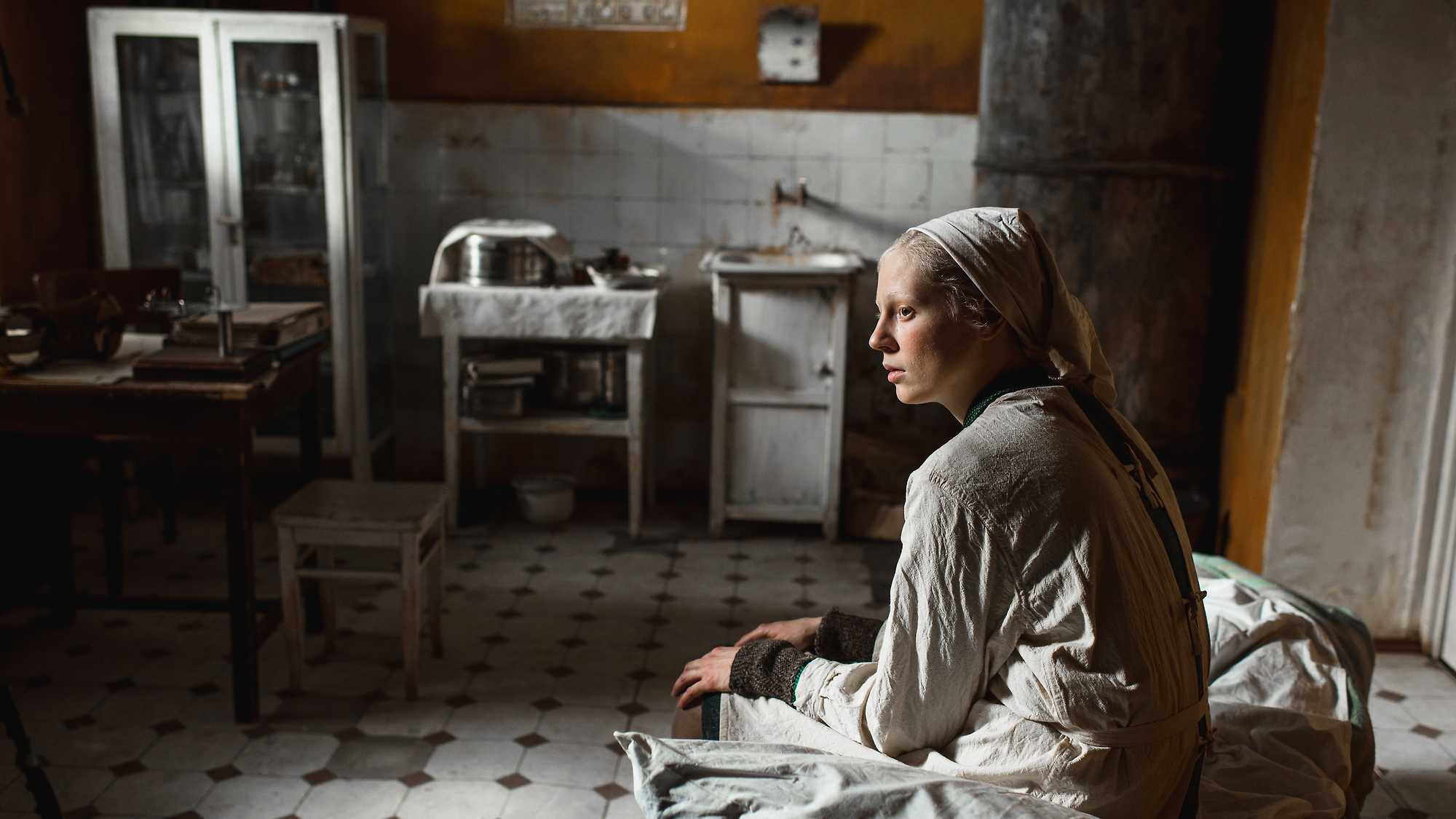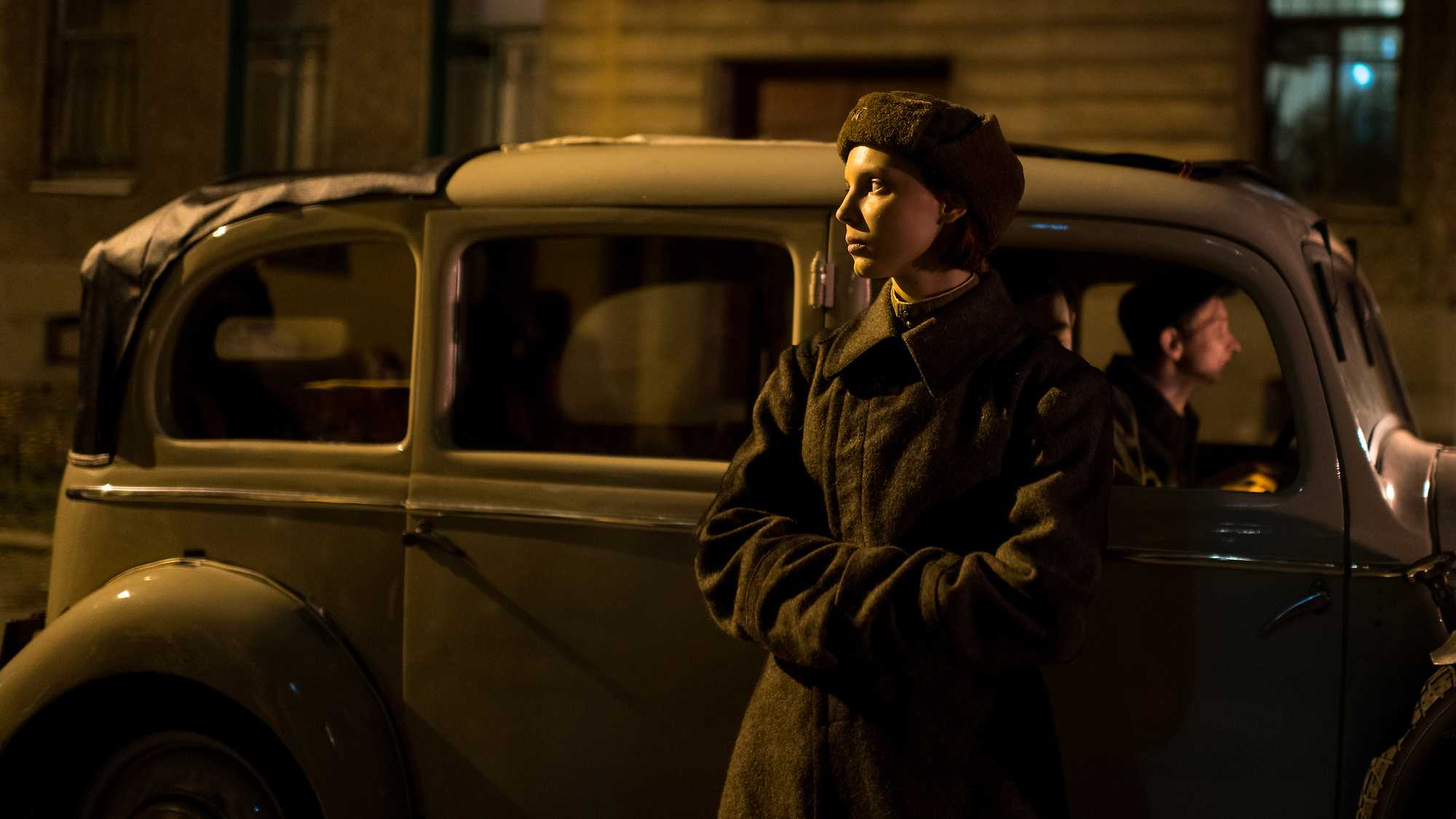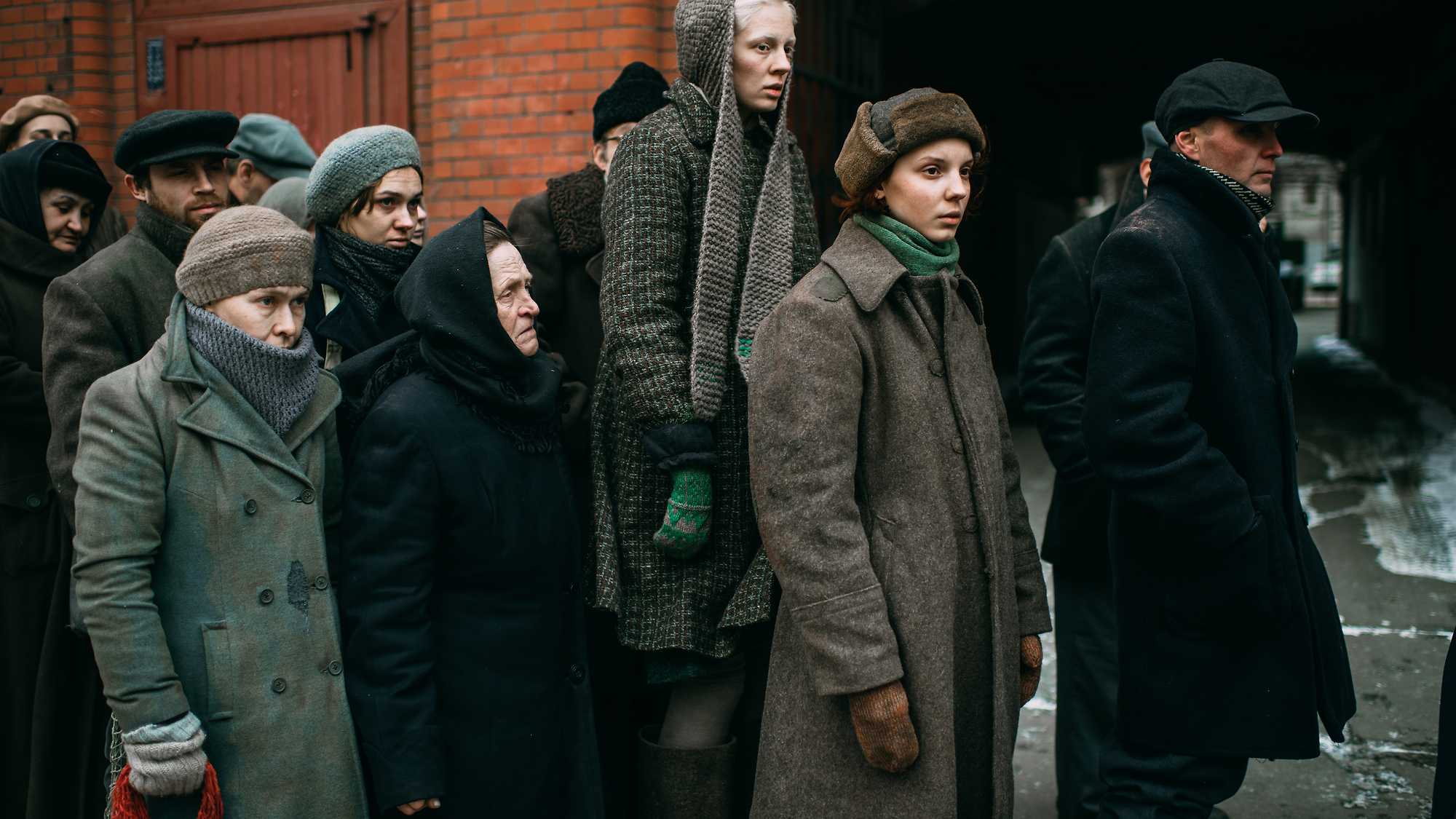Talented Russian filmmaker Kantemir Balagov won Best Director at Cannes (Un Certain Regard) for this hugely impressive account of post-war Leningrad, and the friendship of two women at its devastated centre.



[Balagov’s] ambitions… and his potential as [a]… celebrated filmmaker [are] entirely on display… The bold and exacting Beanpole sometimes feels damn-near radical.
Screened as part of NZIFF 2019
Beanpole 2019
Dylda
Set in Leningrad, 1945, Beanpole explores the devastating aftermath of war – and of one of the worst sieges in history – through the emotionally shattering portrayal of two women as they struggle to adjust to civilian life in the ravaged city. Drawn from Svetlana Alexievich’s remarkable The Unwomanly Face of War chronicling the memories of Russian women who fought in WWII, this accomplished film is informed by an authenticity of lived experience, framed within a heightened mastery of cinematic craft.
Iya, the ‘beanpole’ of the title, is a nurse at a hospital for patients suffering from wartime injuries. She is joined here by Masha, with whom she has an intense emotional bond, and whose young son she has been looking after while Masha was serving in the Red Army. Circumstances will have traumatic repercussions on their relationship and irredeemably shape their future…
“While Beanpole’s subject matter is lacerating… there’s a deep and inviting poetry to [Kantemir Balagov’s] mise-en-scène throughout, and his storytelling is unimpeachable for its reserve and delicacy. That poetry is to be found in the film’s extraordinarily tactile pictures… [and] in Balagov’s compositions too, which reframe our world in surprising, heartstopping ways… That Beanpole excels in so many discrete areas – we haven’t even spoken of its resourceful set design, or of Balagov’s assured direction of actors – is testament to the rigour and imagination of this gifted young director, whose psychological acuity and formal control over his sprawling story mark him as a valuable artist.” — Caspar Salmon, Sight & Sound